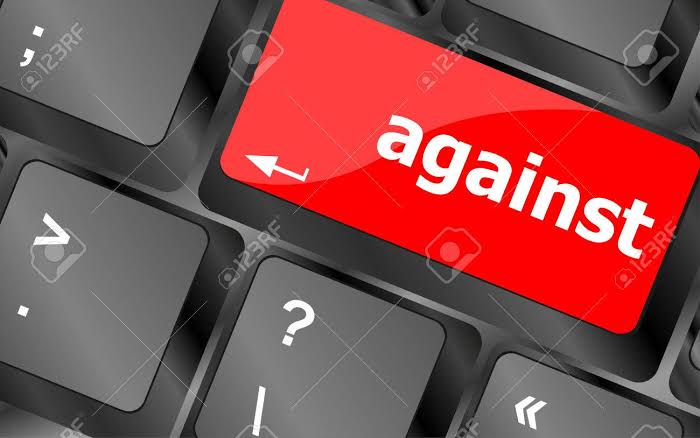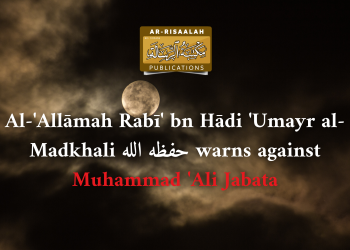Shaykh AbdulLah bn AbdirRaheem Al-Bukhari
At any rate, this methodology and that is the manhaj of the muwāzanāt i.e the mentioning of the good and the bad (qualities).
It has two sides, the First side; when I am writing the biography of an individual, I will speak about him as someone writing his biography (i.e I will mention everything about him); “He was amongst the people of knowledge, he was virtuous except that he has so and so (errors)with him”.
I’m speaking -as a biographer- of his condition and I’m describing his condition. This is a side.
The second side is when I’m in a position of Tahdhir(cautioning) and clarification of the falsehood he is upon, then it i’m not compelled to, rather, it’s not obligatory for me to mention these (good) qualities because the position is one of warning against not a position of biography and mentioning the condition of the individual by way of praises and exhortation of his condition and clarification of his affair. Clear?
Then the methodology of the Quran and the Sunnah is in opposition to that which they are saying. Even the verse they use as evidence or that some of them use as evidence, if we were to closely examine the verse, the viewpoint – as the people of logic would say – the viewpoint is disconnected; the point of evidence with them is not straight.
And we speak with this verse and we believe in it however, they do not believe in it in accordance to what it indicates.
Allah the mighty and Majesty says (what means): and let not the enmity and hatred of others make you avoid justice. Be just: that is nearer to piety. [Al-Mā’idah:8]
Justice is opposite of oppression and Injustice. And justice is making utterances of justice -in statements -and performing deeds of justice -in actions -.
And when we are passing a judgement on something or we are speaking (about it) or we are warning (against it). We have been just and we have not committed Injustice nor oppressed, because as we have said: Justice is the opposite of injustice and we did not commit Injustice in speech.
And We said: “He’s such and such individual” Me not mentioning that he is a good person, he gives charity, he spends etc, this is not from the perfection of Justice. Meaning mentioning these (good characteristics) is not from the perfection of justice. (Am) I obliged to mention these before I become justice?!
The judges pass judgement amongst people (saying): “This is a bandit”, “that one is a thief” and “that one is a killer” and while pronouncing the judgement, they do not write it in the judgement record. They do not mention that he is a Muslim and he testifies that none has the right to be worship except Allāh and he observes the five daily Solah and he does not harm the neighbour and he makes good speech; they do not say this, right?
They say: “So-and-So, the evidence has been established that he is a thief and he is such and such” and that is all, and the legislated punishment is established upon him.
So we are not in a position of opposing justice rather, it is embellishment of justice. From justice is that you should not mention these things because they do not have any relevance. And Allāh, the Mighty and Majestic says (what means): “Surely, disbelievers are those who said “Allāh is the third of the three (in Trinity).” [Al-Mā’idah: 73]
Right? Good. These people do not have other good deeds? They do not have except this statement? They do not have love for the poor, cooperation with one another, and they do not have good actions etc?
Then (those who speak with al-Muwāzanāt oppose) his action peace be upon him, with those who opposed and resisted him from the disbelievers and hypocrites and other than them.
Also, the action of the companions May Allāh’s pleasure be upon them, then the action of the heads of the Ummah: Imãm Ahmad, Imãm Malik, May Allāh have Mercy on him, ash shāfi’ī and other than him, Imãm Ibn Taymiyyah: Al-Fārābi, how many times did Shaykh al-islam refute him in Minhāj as-Sunnah? And at-Tammār and Ibn ‘Arabi and other than them? Don’t they have good deeds? Does his action contradict justice? No.
Justice is that there should not be oppression.
He is an individual that is not a thief, you shouldn’t call him a thief just because you want to justify your speaking against him or your warning against him.
No, oppression is not permissible, even if he is a disbeliever what of someone who is an innovating muslim? I do not know (George) Bush, for example -this disbeliever -the president of America-. I do not know that he is a thief for example, it is not permissible for me to speak about him and say this thief, this robber, this bandit, free mixer. It is not permissible for me to oppress.
This is from oppression and not from justice. And because I want to aid the oppressed Muslims all over the world does not mean I should lie. Because the end does not justify the means with us.
Allāh the Mighty and Majestic say (what means): “O you who believe! Be afraid of Allāh, and be with those who are true (in words and deeds).” [At-Tawbah: 119]
We must be truthful -in statements and actions-. Therefore this verse [Al-Mā’idah:8] is an evidence for us and not against us. And warning against the people of innovations, generally, is a consensus of the people of knowledge.
If you were to look in the biographies of those who spoke against the people of innovations, warning against them, like Imãm Ahmad, Imãm al-Barbahāri and other than them, you will find that they do not mention the good of people of innovations, generally: Ja’d bn Dirhām, Jahm bn Safwān, ‘Amr bn ‘Ubayd al-Mu’tazili and other than them, and the heads and leaders of the people of innovations, you won’t find any good deeds for them,they don’t ever mention their good deeds. Clear? Na’am.




